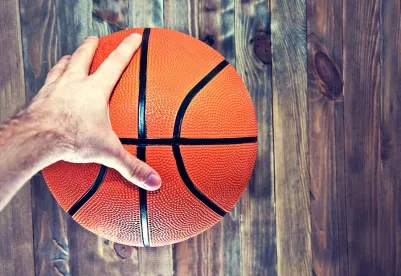Following the NCAA’s recent policy announcement to allow current student-athletes to benefit from the use of their name, likeness and image, a former college athlete has filed a class and collective action complaint against the NCAA and 23 member schools for failing to pay student-athletes.
Former Villanova football player Ralph “Trey” Johnson filed a suit in the Eastern District of Pennsylvania on behalf of himself and similarly situated persons claiming the NCAA and the named colleges and universities violated the Fair Labor Standards Act (FLSA) and state law by not paying their student-athletes.
The 116-page complaint alleges that student-athletes “engaged in athletic work that is unrelated to academics; supervised by full-time, well-paid coaching and training staff; and integral to the billion-dollar Big Business of NCAA sports—are student employees as much as, and arguably more than, fellow students employed in Work Study programs.”
Two federal appeals courts have held that student-athletes are not employees under wage and hour law. In 2016, in Berger v. NCAA, the 7th Circuit broadly held that student-athletes are not employees under the FLSA. In 2019, in Dawson v. NCAA, the 9th Circuit held that the NCAA or PAC-12 Conference were not employers of student-athletes under the FLSA or California state law.
Recognizing this, Donald Remy, NCAA chief operating office and chief legal officer, said,
“[T]his complaint is filed by lawyers who have already sued unsuccessfully on this subject.”
Remy also noted the suit
“ignores previous court rulings that student-athletes are not university employees. The NCAA remains confident that courts will continue to uphold the precedent set by prior decisions.”
Johnson’s complaint, however, relies heavily on a 2018 case that also was brought in the Eastern District of Pennsylvania by another former Villanova football player. In Livers v. NCAA, although the court dismissed Lawrence “Poppy” Livers’ complaint for being outside the two-year statute of limitations, its analysis of the underlying issues may have opened the door for Johnson’s case to proceed.
Johnson emphasizes the Livers court noted “both Berger and Dawson relied heavily on Vanskike v. Peters” to support the rejection of a multi-factor test to evaluate whether an employment relationship exists. 974 F.2d 806 (7th Cir. 1992). The Vanskike court rejected such a multi-factor test in determining whether a prisoner could be considered an employee under the FLSA. That court determined a holistic application of the “economic reality” test was more appropriate, because the Thirteenth Amendment excludes convicted criminals from the prohibition of involuntary servitude, and thus, a multi-factor test would not capture the true nature of the relationship in question.
Although the NCAA has successfully argued that, like in Vanskike, a multi-factor test is not appropriate for evaluating whether a student-athlete is an employee under the FLSA, the Livers court declined to endorse this argument. In fact, the court noted that, although much of its analysis was centered around a holistic application of the “economic realities” test, “this does not foreclose the possibility that an appropriate multi-factor test could be identified for evaluating the question of whether a student-athlete who receives an athletic scholarship is an “employee” for FLSA purposes. The court went on to state that any such test likely would lean on factors used in Donovan v. DialAmerica Merketing, Inc., a 3rd Circuit case distinguishing between employees and independent contractors.
Johnson’s complaint argues that the Livers court recognized “standard FLSA cases are applicable to NCAA sports,” and proposes two tests that could be used, including the 3rd Circuit Donovan test. The complaint also proposes a test used by the 2nd Circuit in determining whether interns are employees under the FLSA.
Significantly, in Berger and Dawson, both courts’ decisions relied heavily on the NCAA’s “long tradition of amateurism in college sports.” In the wake of the NCAA’s unanimous decision to allow student-athletes to benefit from their name, image, and likeness, the amateurism defense may now be open to legal attack. One of Johnson’s lawyers contends that the NCAA is fine with athletes being paid, so long as someone else pays them.





 />i
/>i
